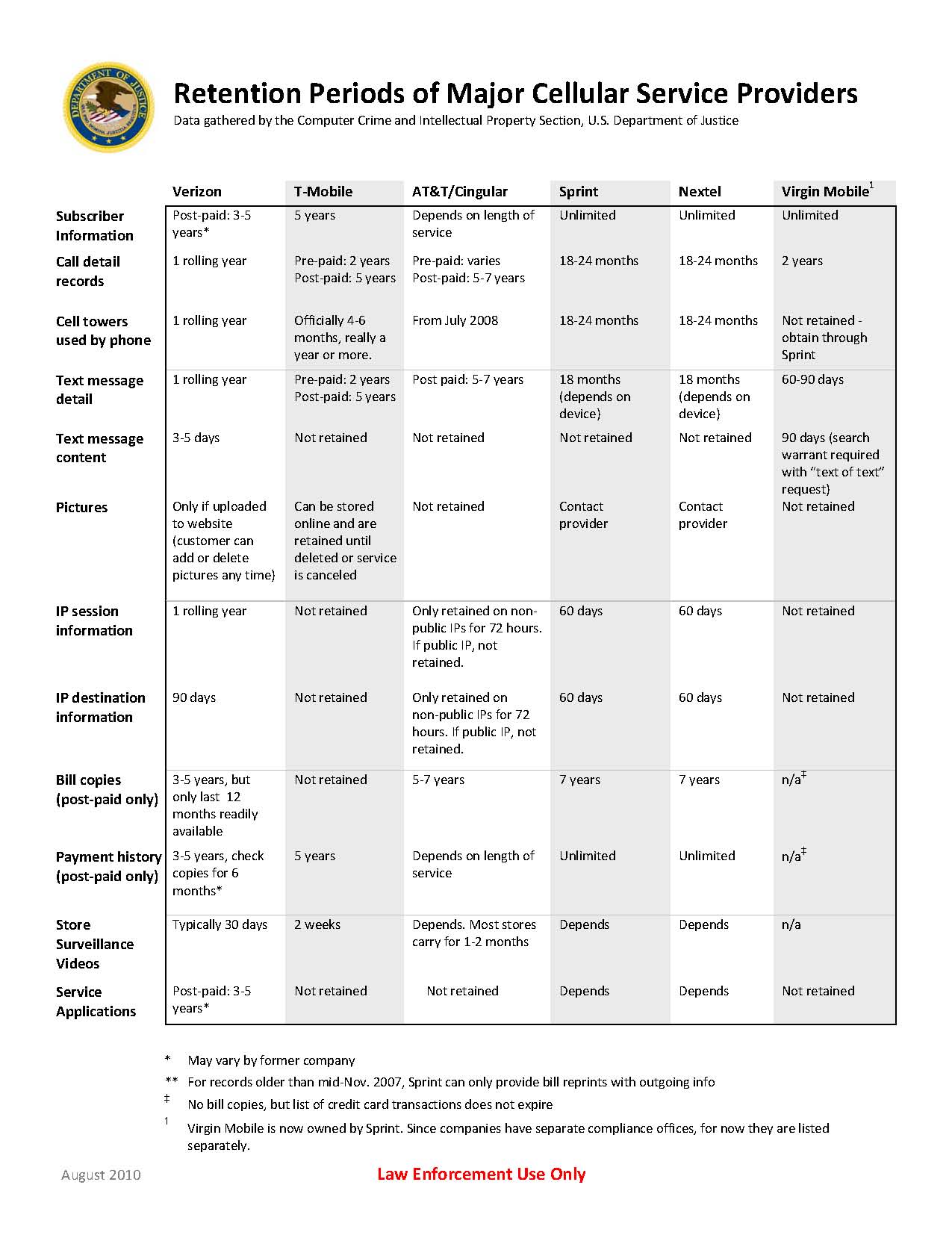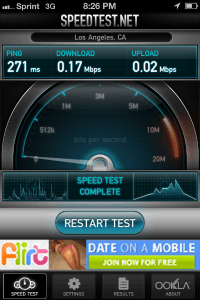 AT&T admits it holds on to some customer data, including text message details, calling records, and billing statements for as long as seven years according to a new Justice Department document that raises privacy and security concerns.
AT&T admits it holds on to some customer data, including text message details, calling records, and billing statements for as long as seven years according to a new Justice Department document that raises privacy and security concerns.
“This disclosure reflects the importance of data minimization,” Greg Nojeim, senior counsel at the Center for Democracy and Technology in Washington, told Bloomberg News. “Some companies do a much better job of disposing of sensitive, personally identifiable information. Once such information is no longer needed for business-reasons, it shouldn’t be held onto because of the risks that it could be obtained by a hacker.”
Privacy advocates are also concerned the lengthy storage offers new opportunities for government intrusion into customer privacy, either for national security or law enforcement purposes.
Although every cell phone company maintains storage of customer and billing records, few keep the data for more than one year. AT&T stores the data the longest, by far, and that bothers the American Civil Liberties Union of North Carolina:
AT&T/Cingular appears to keep all of its cell tower records since July 2008. How long do they plan to keep this data for? Are they just creating an infinite record of everywhere you’ve ever been with your cell phone? Do you remember where you were on September 28, 2008? If you have AT&T/Cingular, your phone company may know. And they might tell the cops.
But the company says it acts as a responsible steward of the information it warehouses.
AT&T gathers data to provide “the best customer experience possible” and uses “powerful encryption and other security safeguards to protect customer data,” according to the company’s privacy policy.
The ACLU chapter filed a Freedom of Information Act request to obtain the data seen above. Once the ACLU won their request, the Justice Department publicly posted the information on their website.
In addition to basic billing and customer data, cell phone companies also record the specific cell towers used when making and receiving calls and the messages that travel across their networks, including where they originated and where they were sent. The numbers called, call length, and the times of day when your phone is used the most were all recorded. Some cell phone companies also use the data for marketing purposes.
Also in North Carolina, last week we shared the story of George Kontos, who single-handedly faced down AT&T, who overcharged his family for nearly two years’ of service. After finally winning a refund of nearly $2,000, Kontos updates Stop the Cap! with news the North Carolina Attorney General’s office has taken an interest in the case and plans to launch a statewide investigation into AT&T’s billing practices. If the state turns up problems, it’s only a matter of time before other states start their own investigations.
[flv width=”480″ height=”290″]http://www.phillipdampier.com/video/WITI Milwaukee Five year dispute with ATT 10-10-11.mp4[/flv]
The Attorney General of Wisconsin might find something to investigate in Wauwatosa — namely one local woman’s five-year fight with AT&T to maintain basic landline phone service. WITI in Milwaukee shares the story of Darnelle Kaishian, who considers fighting AT&T her “full time job.” It’s so bad, her friends now visit her in person, because her phone almost never works. (2 minutes)


 Subscribe
Subscribe




